Michigan Central x Newlab Art + Technology Residency
Advancing Creative Research, Innovation, and Practice
The Michigan Central x Newlab Residency is a pioneering program designed to bridge the gap between artistic inquiry, technological advancement, and entrepreneurial innovation. Developed in partnership with Newlab and funded by the John S. and James L. Knight Foundation, this residency situates creators at the nexus of Detroit’s revitalized innovation district, fostering research, exploration, and impact across disciplines.
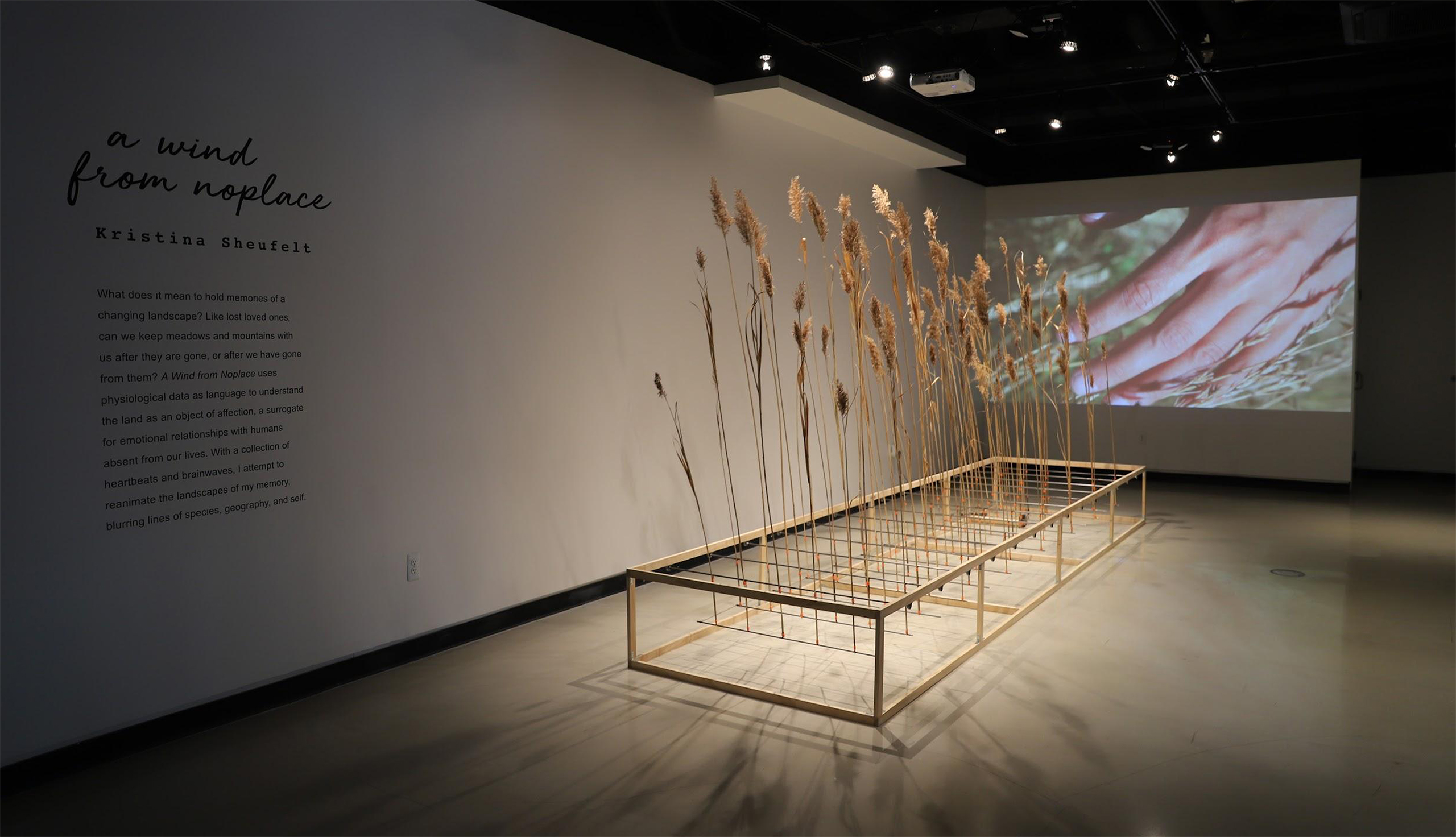
Residency Overview
This residency provides an experiential platform for artists, researchers, and makers to explore critical questions, develop transformative projects, and cultivate sustainable practices. Divided into two complementary components, the program supports both individual research excellence and community-driven creative entrepreneurship.
Fellowship Program
Three exceptional fellows will be selected for a six month research-based fellowship to explore and develop projects within specific thematic areas. Each fellow will receive:
- A $30,000 stipend to advance their project
- Access to Michigan Central and Newlab’s facilities, including prototyping labs, digital tools, and a collaborative network
- One-on-one mentorship and peer engagement opportunities.
Creative Cohort Program
The second component of the residency invites 20 emerging creatives to join a collaborative learning and working environment for 6 months. Participants will benefit from:
- Coworking space at Michigan Central, surrounded by a vibrant community of thinkers and makers
- Enrollment in a creative entrepreneurship course, designed to equip participants with the tools to professionalize and scale their creative practices.
Fellows will work in one of the following research areas:Data & Privacy: Investigate pressing issues at the intersection of ethics, surveillance, and digital rights. Projects might include developing tools for privacy-conscious communication, artistic explorations of data sovereignty, or frameworks for ethical AI deployment.
Emerging Technology Curation: Reimagine how audiences experience art, technology, and culture. Fellows may design interactive installations, curate immersive storytelling experiences, or develop hybrid models of cultural engagement that challenge conventional norms.
Prototyping: Bring innovative ideas to life with experimental technologies, state of the art fabrication equipment, and speculative methods. This might include sustainable design solutions, conceptual hardware projects, or community-oriented innovations aimed at enhancing quality of life.
The fellowship offers a unique opportunity to push disciplinary boundaries and contribute to critical global conversations
Participants will also engage in workshops, group critiques, and mentorship sessions to refine their ideas and position their work for greater impact.
2025 Fellows
-
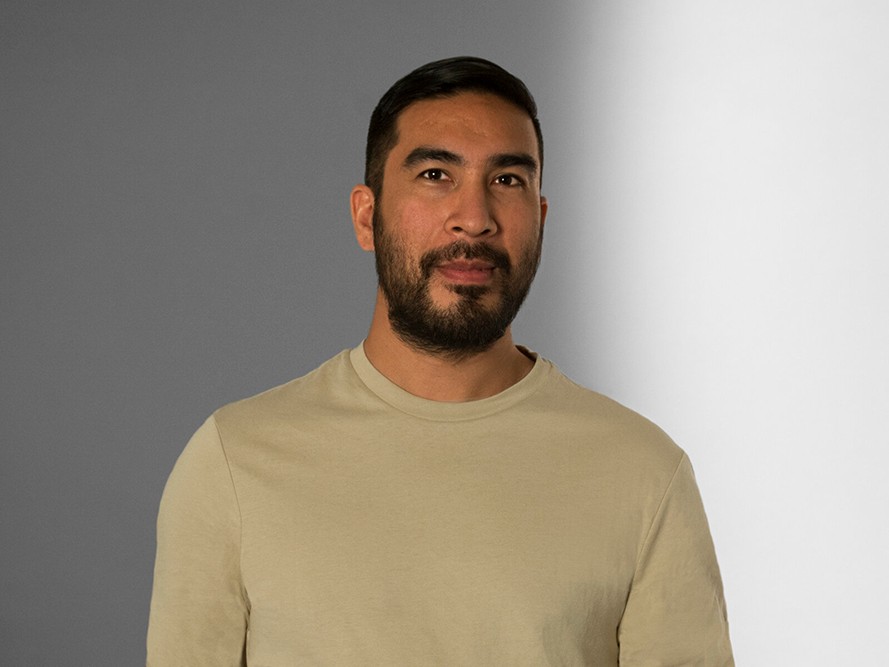
alejandro t. acierto
alejandro t. acierto produces creative projects, exhibitions, and performances that highlight the impact of colonial legacies across technologies, material culture, and the environment. Often taking shape within and across expanded forms of documentary, installation, creative scholarship, and sound, he has presented projects and screenings for the Havana Biennial (Matanzas, Cuba), Yerba Buena Center for the Arts (San Francisco), MCA Chicago, Echo Park Film Center (Los Angeles), Eastside Projects (Birmingham, UK), and performance works for the Rapid Pulse Performance Art Festival (Chicago) and the KANEKO (Omaha), among others.
A 3Arts Awardee, acierto has held residencies at Skowhegan School of Painting and Sculpture, Virginia Center for the Creative Arts, and the Banff Centre. He has also published works with Hyperallergic, Parse Journal, Dilettante Army, and Resonance: The Journal of Sound and Culture and was Artist in Residence for Critical Race Studies at Michigan State University, a Core Faculty Teaching Fellow at Warren Wilson College in the MA for Critical Craft Studies, and Digital Humanities Faculty Fellow at Vanderbilt University. acierto is currently an Assistant Professor of Digital Arts at Wayne State University located in Waawiyaataanong on the ceded lands of the Three Fires Confederacy, including the Ojibwe, Odawa, Potawatomi, and Wyandot peoples.
-
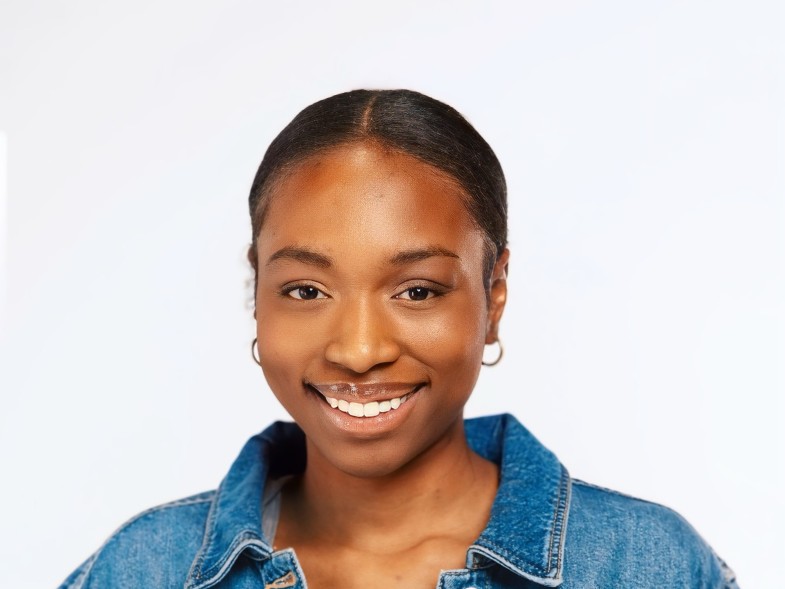
Nadia Boone
Nadia Boone is a Detroit-based designer and maker whose work bridges craftsmanship, sustainability, and material innovation. Her creative journey began in childhood with duct tape wallets and evolved into a multidisciplinary practice encompassing fashion design, woodworking, and ceramics. She earned her B.A. in Fashion Design from Kent State University and studied haute couture techniques at the Paris American Academy in Paris, France. Her practice blends traditional tailoring with experimental materials, including biodegradable and bio-fabricated textiles.
In 2024, right after she graduated, Nadia founded BIOSPOKE, a fashion business focused on sustainable suiting and accessories made from textile waste-derived and bio-engineered materials, including algae-based polymers and lab-developed bioplastics. Her work explores circular systems and cultural relevance, challenging ideas of luxury and environmental responsibility. She has collaborated with institutions like the Michigan Science Center to share sustainable fashion with younger audiences and is part of the core team for Fashion Revolution Detroit, advocating for transparency and ethics in the fashion industry. Nadia’s approach reimagines luxury fashion through an ecological lens.
-
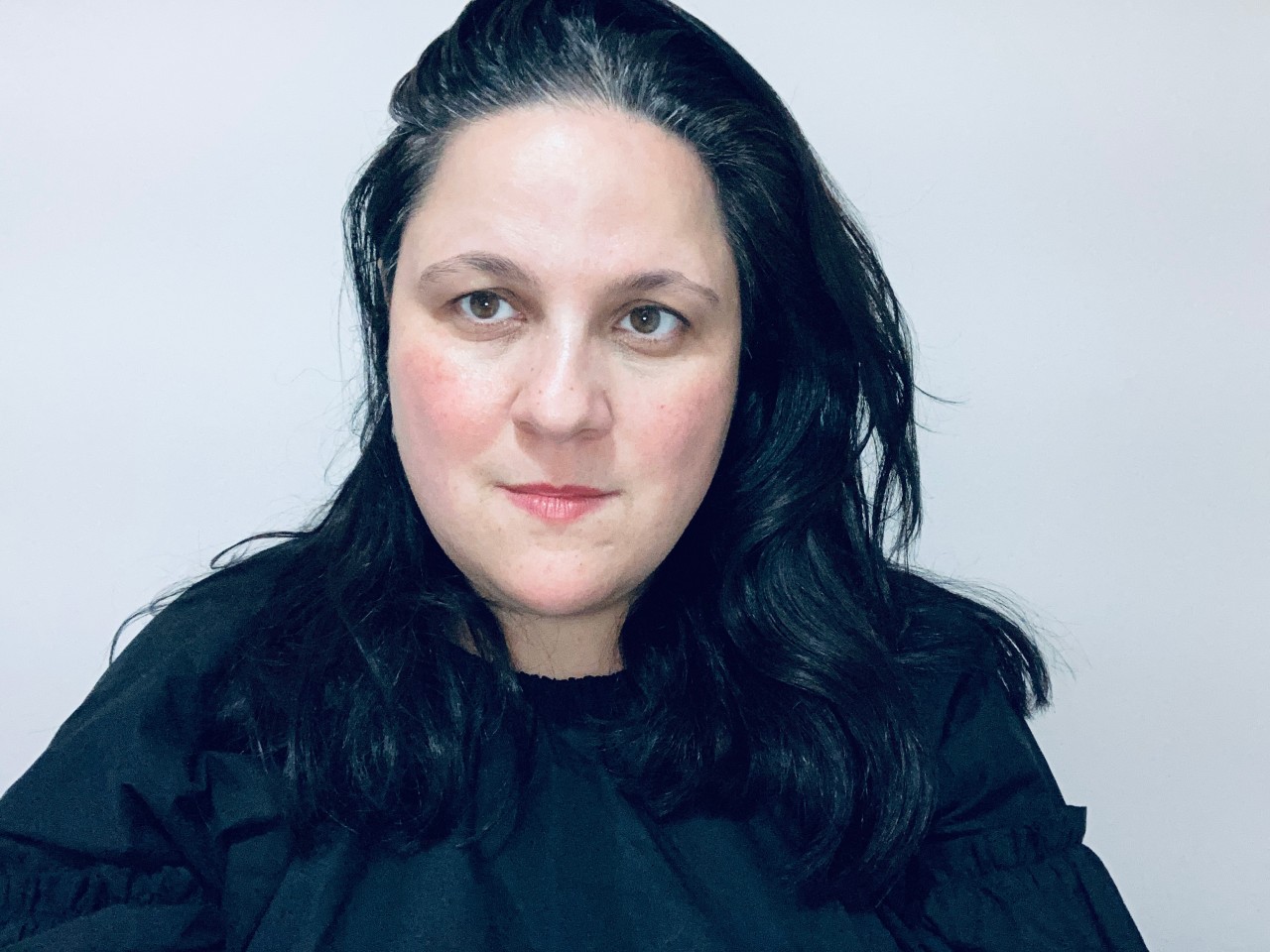
Laura Foxman
Laura Foxman (she/her) is a Detroit-based interdisciplinary architect/artist who designs civic and cultural infrastructures that range from the scale of objects to archives to the urban environment. Her work aims to inspire greater connection with and stewardship of our natural and cultural worlds. Her collaborative, interdisciplinary spatial practice called
We Are All Collage traverses many spatial disciplines including architecture, art, archival practice, climate action, conservation/preservation, furniture design, installation, landscape, and urbanism. Laura is as passionate about practice and collaborating on things in the world as she is about teaching and the culture of ideas and information. She is an assistant professor at Wayne State University and a licensed architect active in civic, cultural, and nonprofit-based projects, consulting, and research. Laura has engaged with numerous institutions and organizations through her work including Congress of Communities, Detroit Sound Conservancy, Design Core Detroit, ISSUE Project Room, the Library of Congress, Midtown Detroit, MOCAD, and the University Liggett School. Her current research projects include green infrastructure design with botanist Simon Gilroy (University of Wisconsin-Madison); and an interactive history project called the Modern Architect Network realized in collaboration with designer/programmer Sam Oliver and others, which frames modern architecture as a collective endeavor, while foregrounding histories of women and underrecognized architects. Laura is rehabbing a 1920s bungalow, where she will host shows centered on domestic objects and art, including furniture of her own making.
-
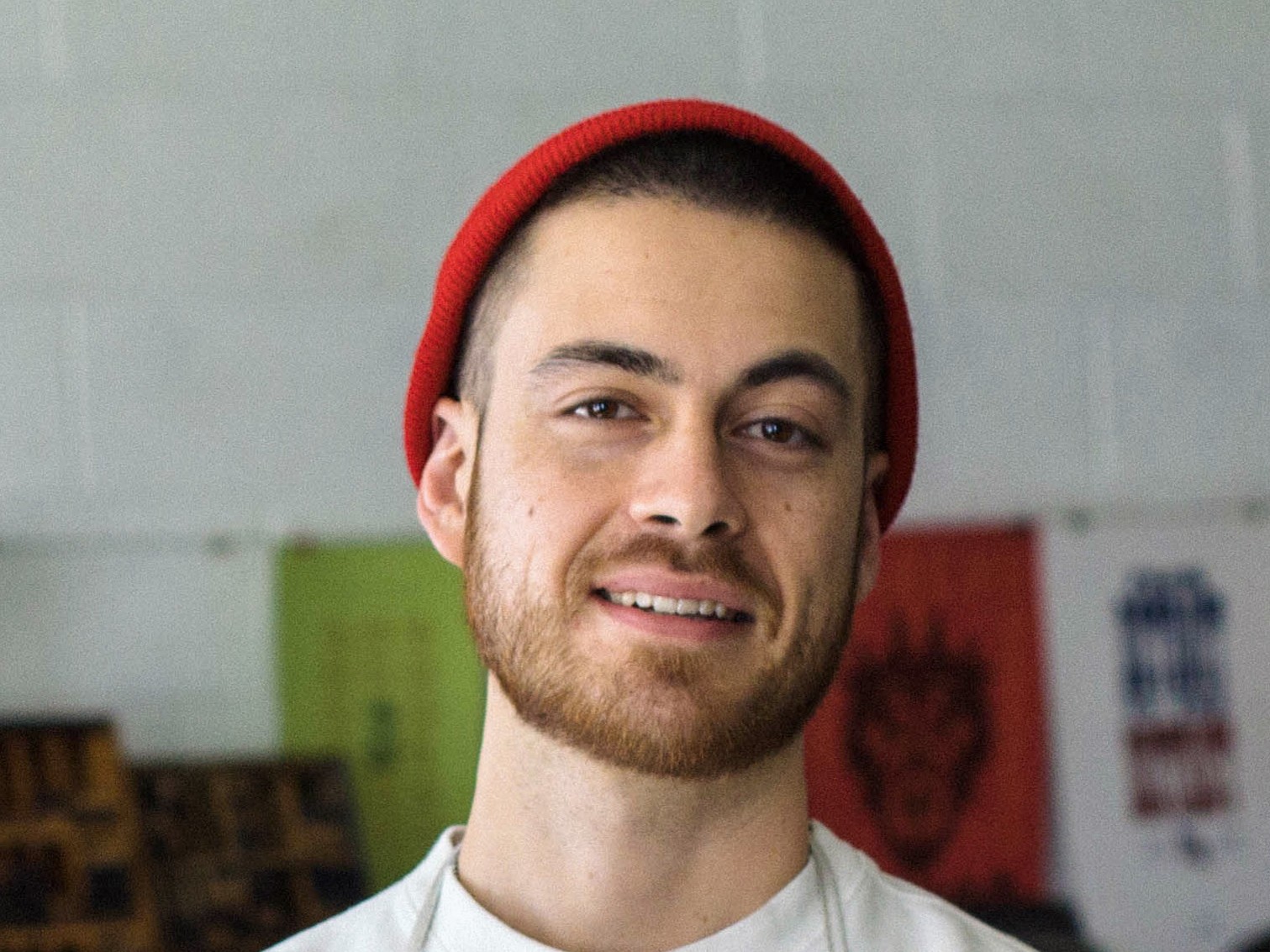
Francis Vallejo
Francis Vallejo is an award-winning, Detroit native, Mexican-American artist whose works have been exhibited in major national publications, art galleries, and museums. Vallejo earned his Bachelor’s degree from Ringling College of Art + Design and his M.A. from Savannah College of Art + Design. He has since created artworks for a host of notable clients and exhibits. Vallejo’s Jazz Day, written by Roxane Orgill and published by Candlewick Press, was the recipient of the Boston Globe Horn Book award for Best Picture Book. His illustrated book, Anansi Boys, written by Neil Gaiman, and published by The Folio Society, has won Spectrum Gold, the D&AD Pencil, and other awards. He recently received a prestigious 2023 Kresge Visual Arts Fellowship.
He currently serves as Section Lead & Associate Professor of Illustration at the College for Creative Studies, and Chair of the Board for the nonprofit Art-ology.
-
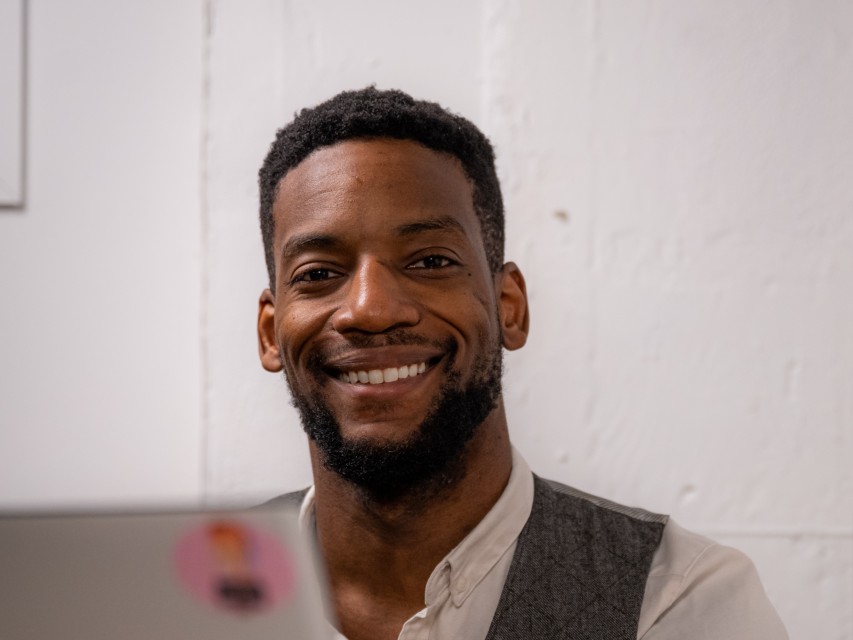
John Wolff
John Wolff is the CEO, Founder, and executive producer at Urban Electronics, Inc. John is a native Detroiter, long-time mobile game developer, advocate, and speaker both domestically and internationally. He is an experienced Data Scientist, and world traveler who is bilingual in Japanese having worked 4 years overseas where he was involved in the production of novel Japanese mobile titles involving the IP of Hello Kitty and Gudetama, as well as Japan’s fi rst-ever blockchain game, Crypt-Oink.
Urban Electronics, Inc. creates games and location-based digital media using Augmented Reality (AR) and Geospatial technologies to enliven public spaces creatively. Our products have been featured on TEDx and the Netflix Docuseries, The Future Of [Gaming] (Episode 4). Urban Electronics is a managed partner of Niantic, the creators of the smash-hit PokemonGO. In 2023 Urban Electronics was awarded as a Michigan SmartZone Best Small Business.
-
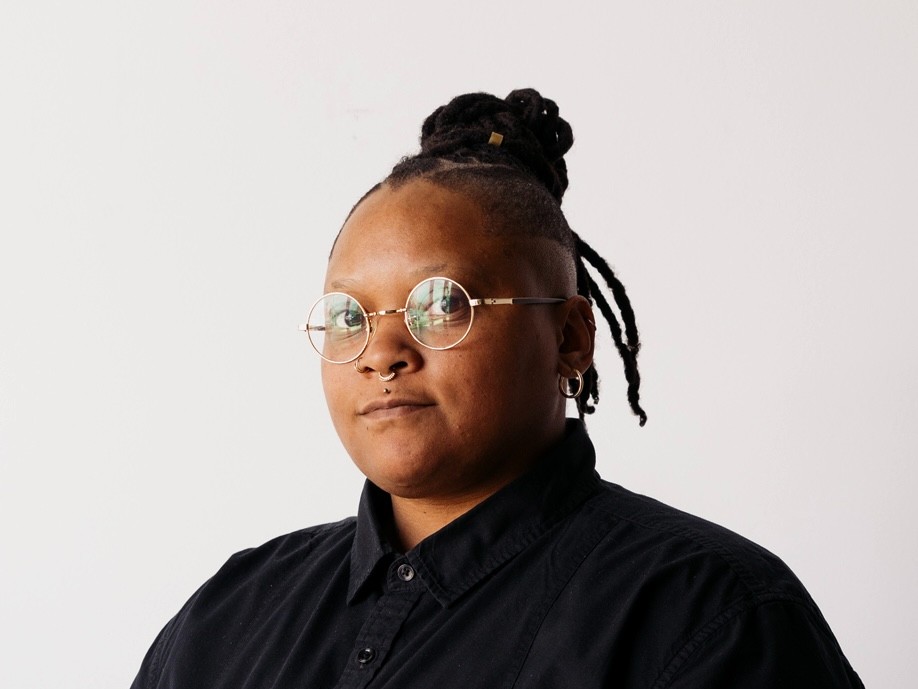
Vanessa Reynolds
Vanessa Reynolds (Venusloc) is a self taught musician and interdisciplinary artist born and raised in Detroit, MI. Their core practice, influenced partially by their 10 plus years of performing music in Detroit, focuses on producing short experimental films utilizing video collage, animation and music production.
They began creating video art in 2020, thereafter winning a grant from The Detroit Narrative Agency. Since then, their work has been shown at Riverbank Arts (U of M Flint), Scribe Video Center (PHL), Midway Fair (CHI), and in publications such as Your Mom’s Berlin, Mixmag and Dublab. In 2023, they were awarded the Kresge Artist Fellowship for video art. Their short audio/visual film, F.Y.G. is currently exhibited in Code Switch: Distributing Blackness, Reprogramming Video Art, a group show co curated by The Kitchen (NYC) & the Museum of Contemporary Art Detroit.
-
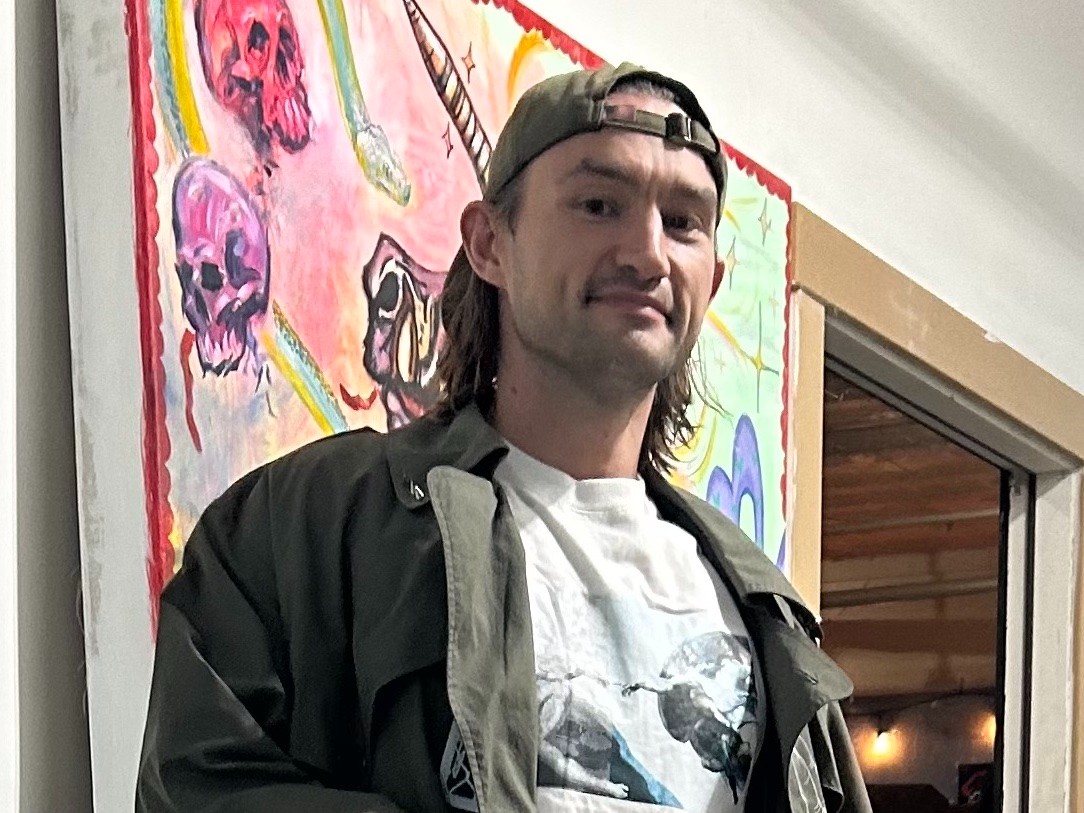
John Gulbronson
John Gulbronson is a multidisciplinary developer, artist, and community organizer based in Detroit. His creative practice centers on deploying technology to strengthen artistic ecosystems and build infrastructure for collaboration, ownership, and long-term sustainability. With a background in full-stack software development and a deep commitment to civic engagement, John develops tools that empower artists and communities.
As treasurer of Art Night Detroit, a nonprofit supporting Detroit-based creatives through events and reinvestment, John helps ensure that artists are both celebrated and compensated. He also leads open-source development initiatives designed to unite developers, creatives, and civic leaders in building software that addresses Detroit’s most pressing challenges.
John believes that technology, when created with intention and shared openly, can be a powerful force for equity, creativity, and systemic change. Through his work, he aims to inspire the next generation of builders and foster a culture of collaboration that uplifts communities. -
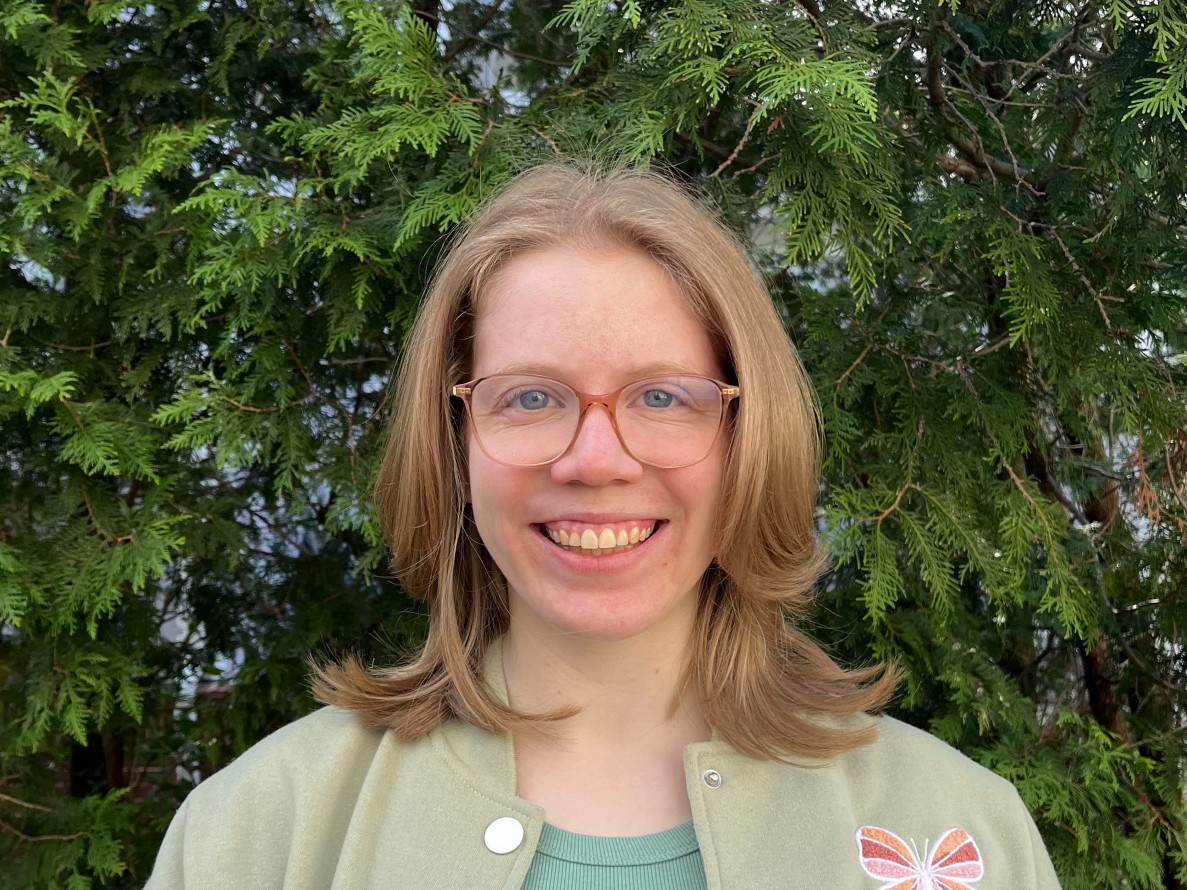
Samantha Flucht
Samantha Flucht is the owner and designer of Sammy Whammy’s, a gender free, ethically made, made to be handed down, kid’s clothing company. Her interest in fashion started by making cosplays for herself with felt and a hot glue gun, eventually leading her to learn how to sew by watching YouTube videos and using her mom’s twenty year old sewing machine. As she learned more about how our clothing is made and the unfortunate prevalence of sweatshops, Samantha knew that she wanted to start her own ethically made clothing brand.
After graduating from Kent State University in 2023 she launched Sammy Whammy’s. Throughout her education there she realized that she was happiest designing kid’s clothing, but found that the current gender free market was a bit too beige for her liking. Sammy Whammy’s was launched with a philosophy of combining traditionally gendered elements together to make gender free pieces. Currently headquartered out of her parents’ dining room in Canton, Samantha can be found making each item herself, from pattern to finished garment.
-
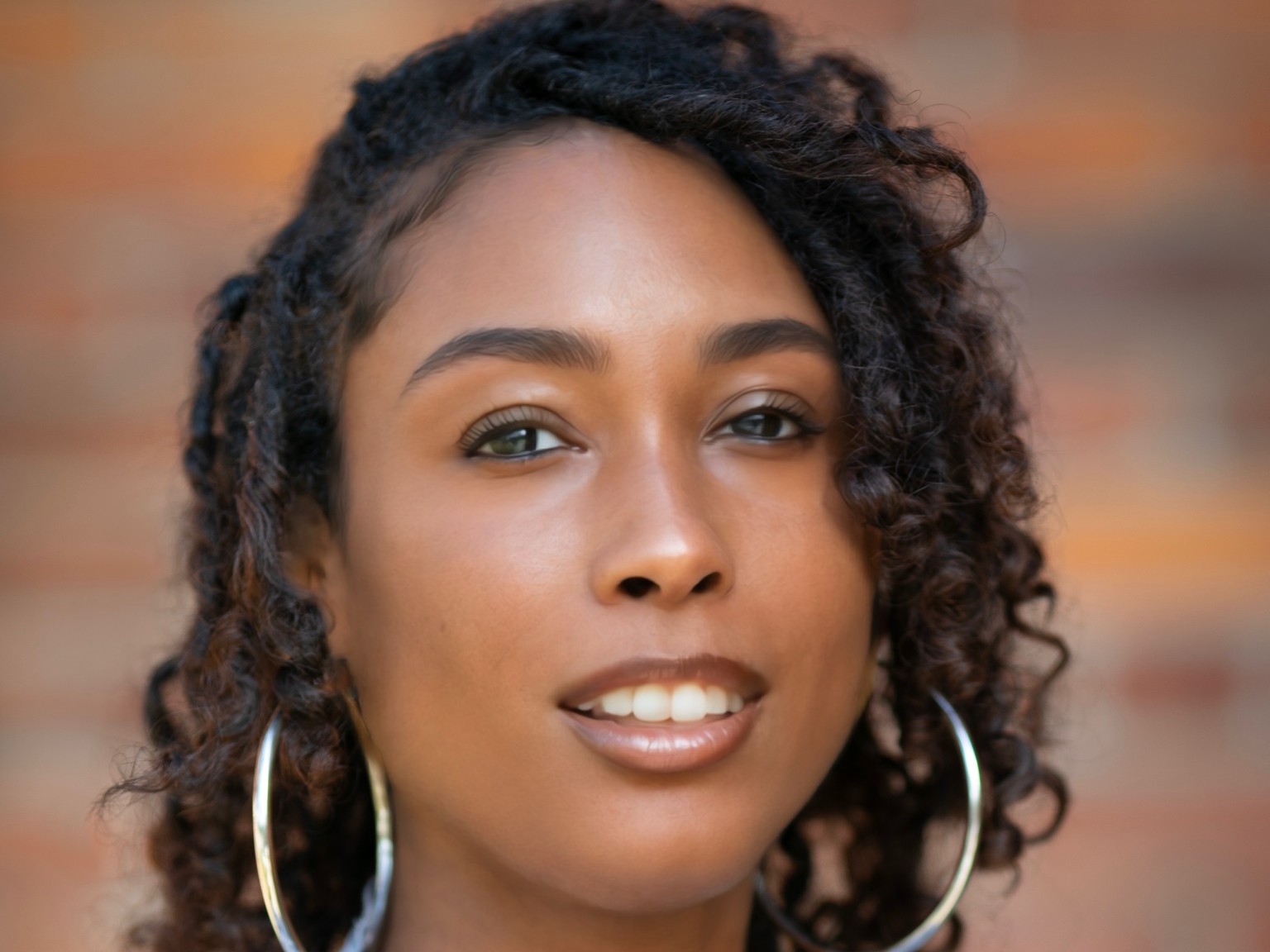
Natalie Hicks
Natalie Hicks is a fashion entrepreneur and apparel product development specialist with over a decade of experience in cut and sew manufacturing. She is the founder of Visn Studio, a Detroit-based coworking space and micro factory that merges digital design, sustainable production, and creative education to reimagine how fashion is made and who gets to make it.
A graduate of the Illinois Institute of Art Chicago and current MBA candidate at Wayne State University, Natalie’s practice is rooted in both technical excellence and social impact. Her mission is to build accessible, tech forward pathways in fashion that center ethical production, economic opportunity, and local pride.
Natalie is the founder of Will to Adorn, a textile focused collection of upcycled and hand dyed garments. She has been awarded a New York City Artist Corps grant and selected for the Chashama Storefront Startup program, where she operated an independent retail space. She is also a Detroit Means Business SBOA Fellow. Her production work has supported brands featured in Details Magazine, Huffington Post, and sold at Nordstrom, Urban Outfitters, and West Elm.
Through Visn Studio, Natalie is laying the foundation for a new fashion economy in Detroit—one that is artist led, tech integrated, and built with care.
-
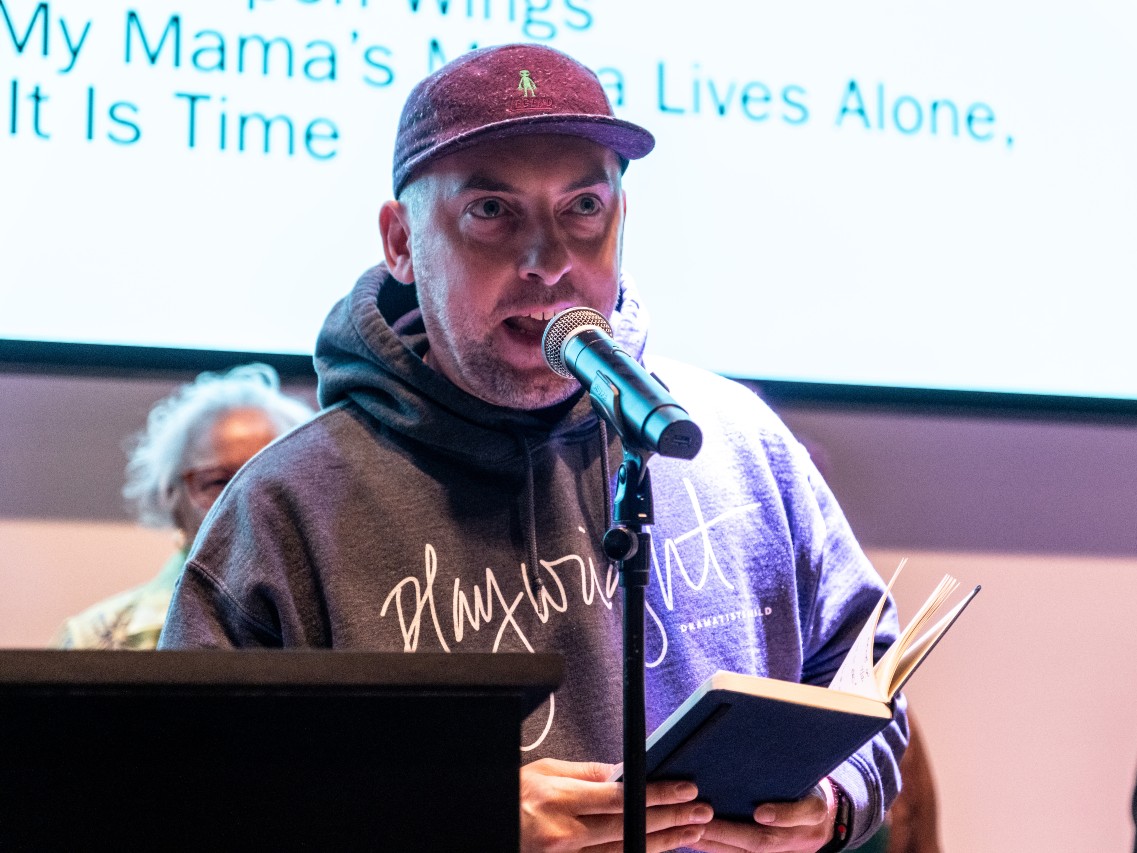
Andrew Morton
Andrew Morton is a queer immigrant, playwright, and theatre-maker known for his work in
socially engaged performance and arts education. Originally from the UK, Morton earned his MA in Cross-Sectoral and Community Arts from Goldsmiths College, University of
London, in collaboration with the National Theatre of Great Britain, where he developed his practice of arts accessibility and community engagement.He now lives in Detroit, where he works as a writer-in-residence with InsideOut Literary Arts and as an artist facilitator with University Musical Society (UMS). He is also the founding producing artistic collaborator at Every Soul Arts, where he leads initiatives such as Sofa Stories, a program that uses live theatre and digital media to share the experiences of young people impacted by housing insecurity and raise awareness of youth homelessness through public performances and community partnerships.
Morton’s work has been recognized with numerous honors, including a 2020 Kresge Artist Fellowship and the Kennedy Center Gold Medallion for excellence in theatre education. His plays have been produced internationally, and his award-winning play Bloom, inspired by urban gardeners in Flint, Michigan, is published by Dramatic Publishing. In 2024, American Theatre Magazine named him one of six Detroit theatre workers you should
know. -
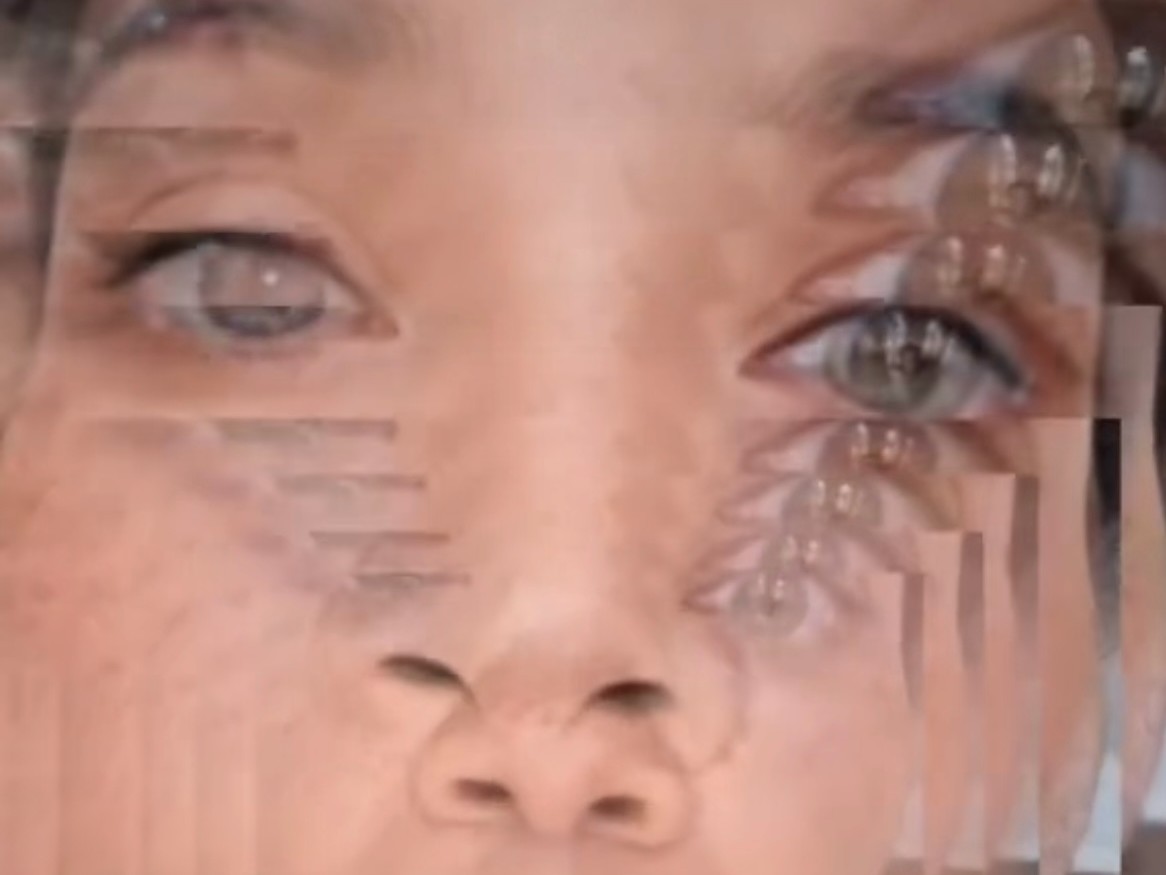
Rory Scott
Rory Scott is a multidisciplinary artist whose work combines animation, XR (AR/VR), AI, 3D printing, photography, projection, and other media to reimagine perception and reality. Her practice centers on creating transformative experiences that cultivate connection—within ourselves, with each other, and with the developing digital landscape, intersecting with our living world.
Impermanence (2010–present) is her ongoing life project and personal practice—an evolving body of work exploring memory, the passage of time, the overlap between humanity and technology, along with the power of embracing patterns and letting go.
In recent years, Scott has integrated her personal breathwork and wellness practices into her creative process, developing experiential tools that promote emotional regulation, mindfulness, and self-growth. These tools, often combining immersive technology with somatic guidance, act as bridges between art, personal growth, and technology.
Through dreamlike imagery and augmented worlds, she explores the architecture of thought and belief and the fluid nature of reality, inviting audiences into internal stillness.
Her work has exhibited worldwide and been recognized by NEWVIEW (Tokyo), the Museum of Science and Industry (Chicago), and the Kresge Arts Foundation (Detroit), with collaborations including Nokia Bell Labs, Ernst & Young, Snapchat, and TikTok.
At the heart of Scott’s practice is the belief that humanity evolves through self-awareness. By integrating Art + Technology + Wellness, her work opens unexpected pathways to self-discovery and inner transformation. Through immersive experiences, she invites others into conscious co-creation—bridging personal insight with collective healing.
-
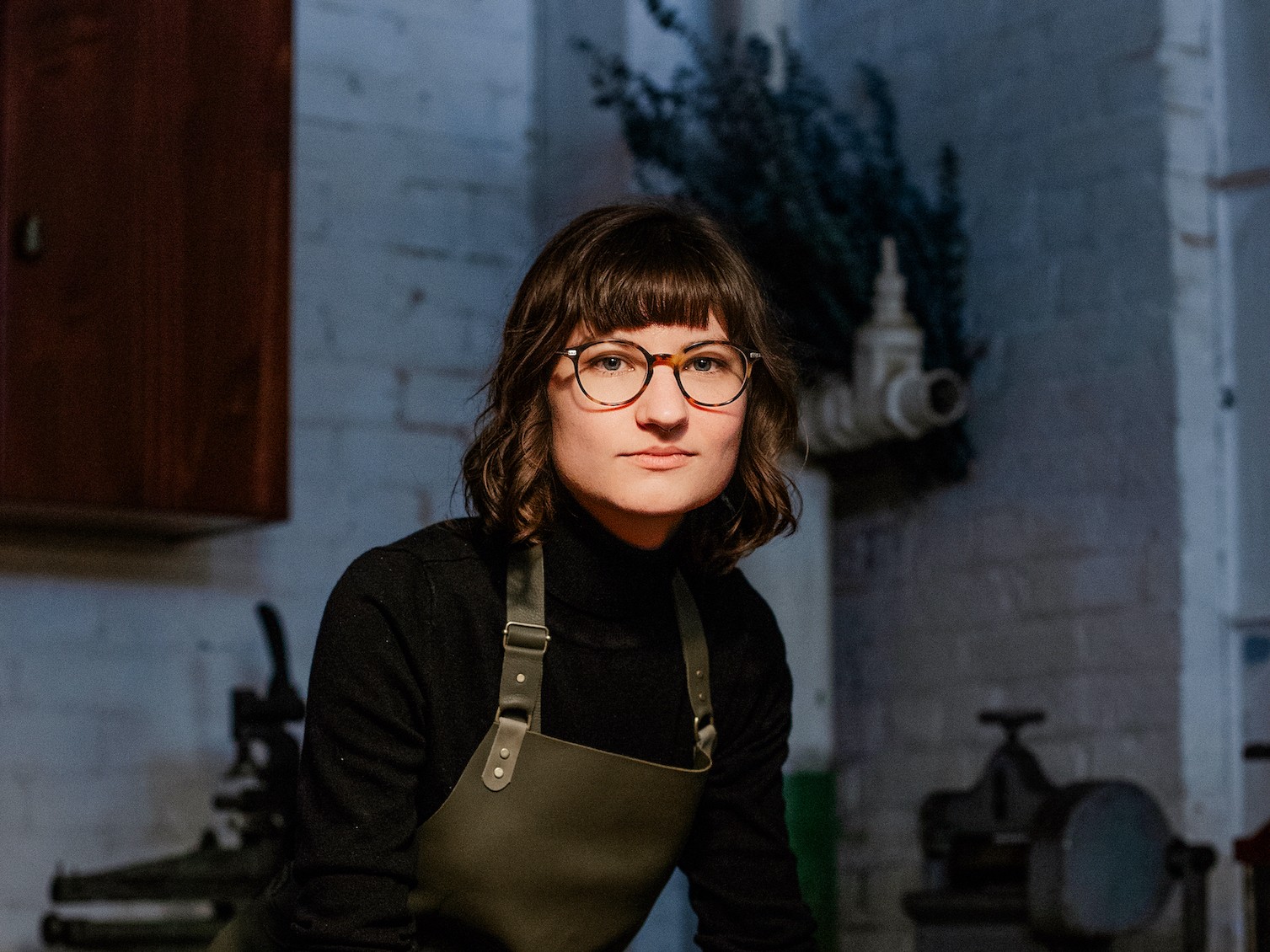
Gabrielle Soltis
Gabrielle Soltis is a bespoke shoemaker based in Detroit. She views her craft as a form of resistance against the dehumanizing forces of mechanization and industrialization. Each pair of shoes is an act of care, a deliberate choice to center the human hand in a world that increasingly favors speed and convenience over quality and intention. Amid the relentless pursuit of quarterly profits, creating beautiful, handcrafted objects reaffirms our shared humanity and reclaims our common birthright to dignified, meaningful work.
Soltis began her artistic career as a ceramicist, earning a B.F.A. in Ceramics at the College for Creative Studies and working as a production slipcaster. After enduring nearly three decades of badly fitting shoes, she decided to learn to make her own. Soltis enrolled in a shoemaking concentration at Penland School of Crafts.
Upon returning to Detroit, Soltis joined CAVE, a multidisciplinary artist collective, where she officially launched her bespoke shoe brand. Unlike mass-produced shoes, which are made using standardized lasts, Soltis crafts bespoke leather shoes on custom lasts tailored to the individual feet of each client. She uses only high-quality, full-grain leather, with insoles made from oak-bark tanned leather to ensure durability and comfort. The results are shoes that are not only beautiful but are made to last a lifetime.
-
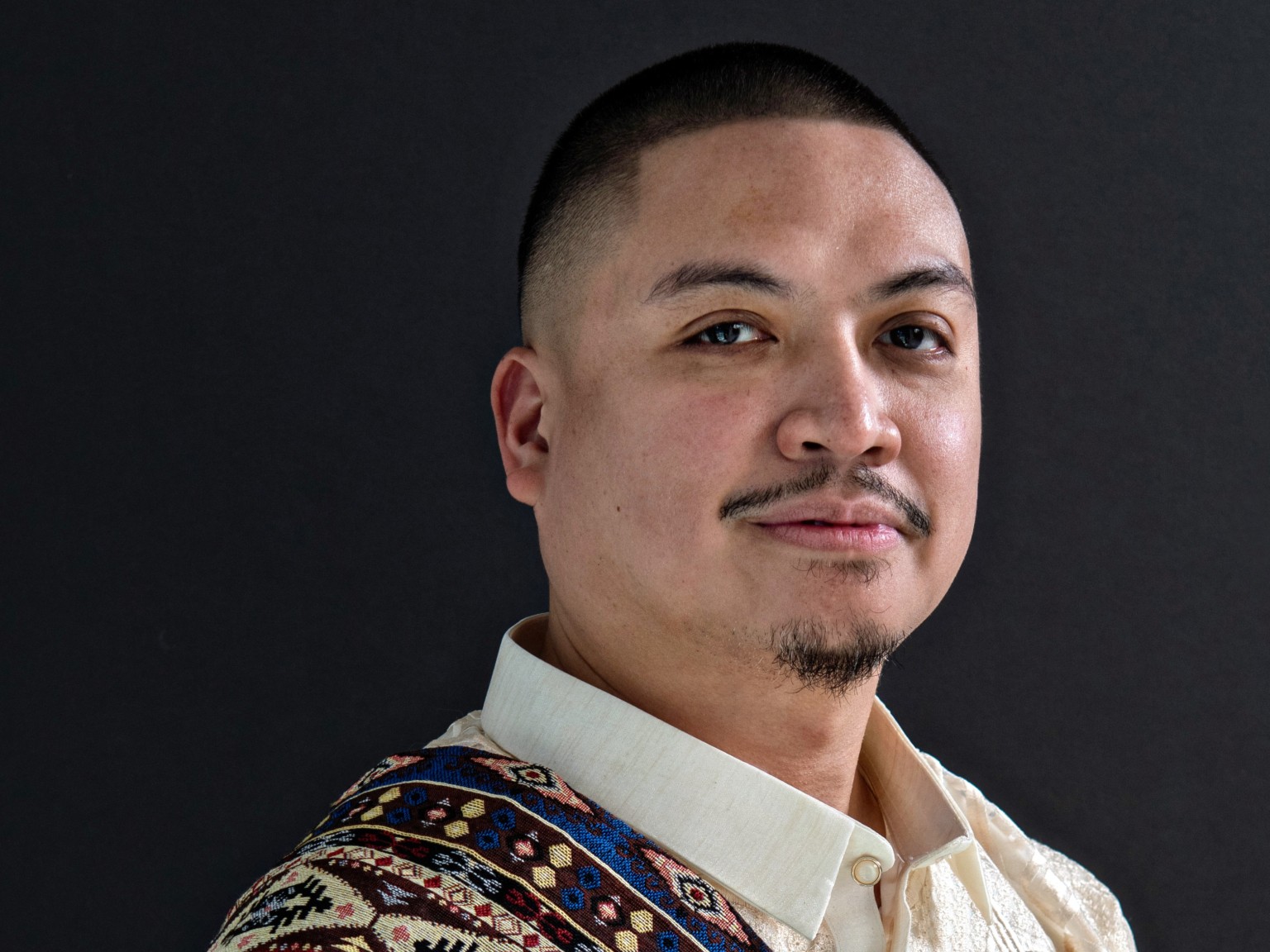
Mark Calaguas
Mark Calaguas is an attorney, cultural steward, and responsible tech advocate with interdisciplinary experience in nonprofit leadership and public service. He is co-founder and legal counsel for Tayo, a community data hub that initially launched as a web-based public health education platform serving the Filipino diaspora. Currently, the project harnesses narrative change to foster information literacy skills on an intergenerational level through multimedia content creation, community-based participatory research, and in-person activations. Mark is board president of the Alliance of Filipinos for Immigrant Rights and Empowerment (AFIRE) and an inaugural member of the Communications Advisory Group of the National Academy of Medicine. Previously, he was a federal appointee on the Illinois State Advisory Committee of the U.S. Commission on Civil Rights and served as community relations manager and artist curator for Kultura, a contemporary Filipino food and arts festival in Chicago. Mark holds a B.A. in Comparative Literature and English from the University of Michigan and a J.D. with Certificate in International Law and Practice from Loyola University Chicago. He has presented at venues as diverse as RightsCon, the National Science Foundation, Center for Democracy and Technology, Collaborative Journalism Summit, ABA TECHSHOW, and Block Club Chicago, among others.
-
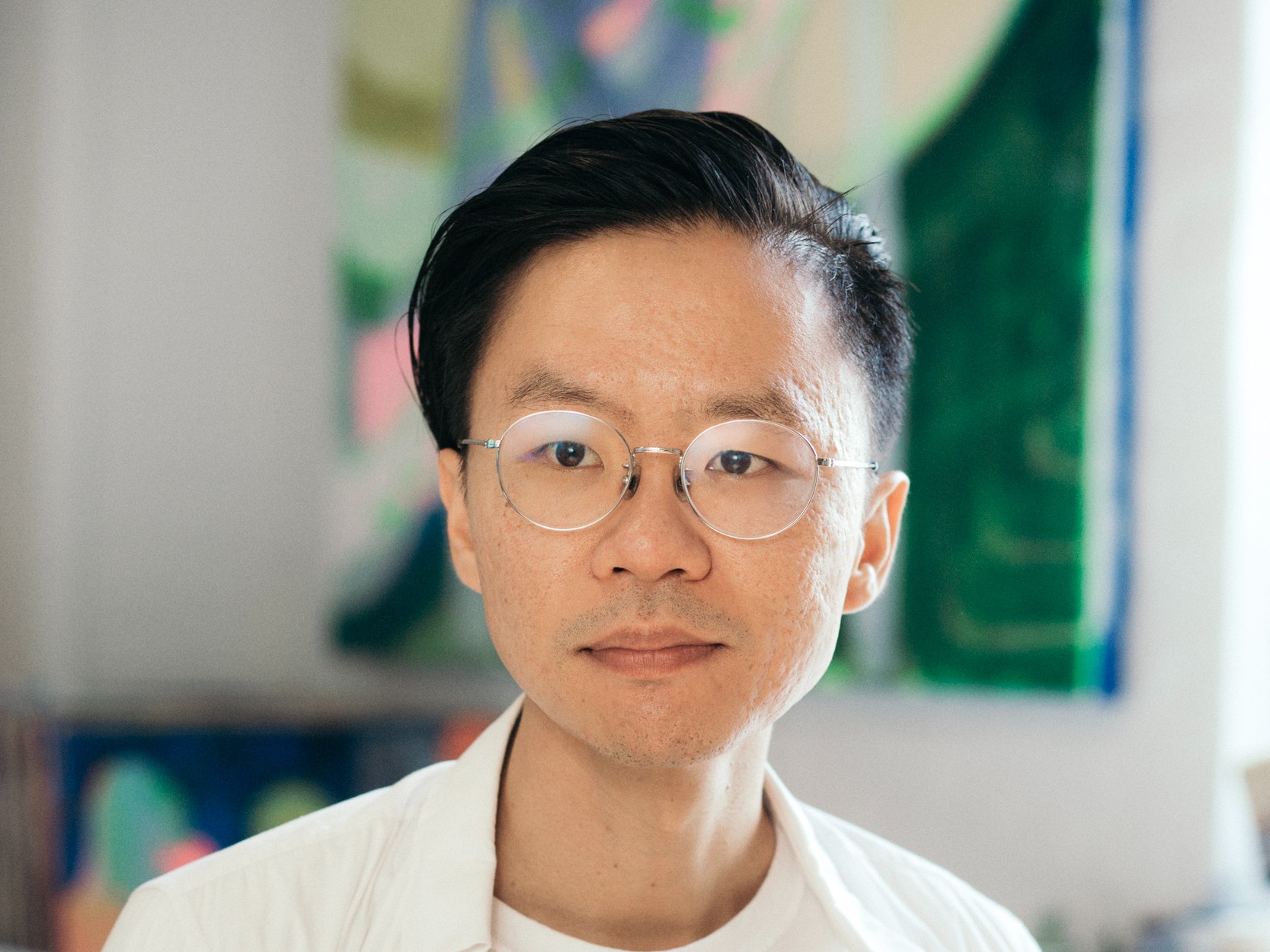
Taeyoon Choi
Taeyoon Choi is an artist and educator, who often collaborates with fellow artists, designers, engineers and community members. His practice involves visual art, research, pedagogy, technology and participatory performance. His works were presented at the Whitney Museum of American Art, New Museum, LACMA and he had fellowships at Eyebeam Art and Technology Center, Data and Society among others. In 2013, he co-founded the School for Poetic Computation where he worked as a teacher and organizer for seven years. Currently, he’s an assistant professor of Digital Arts at Wayne State University, and serves on the strategic board of AFIELD, an international network of cultural changemakers. He runs forever✰ gallery, an independent gallery based in Seoul and online.
-
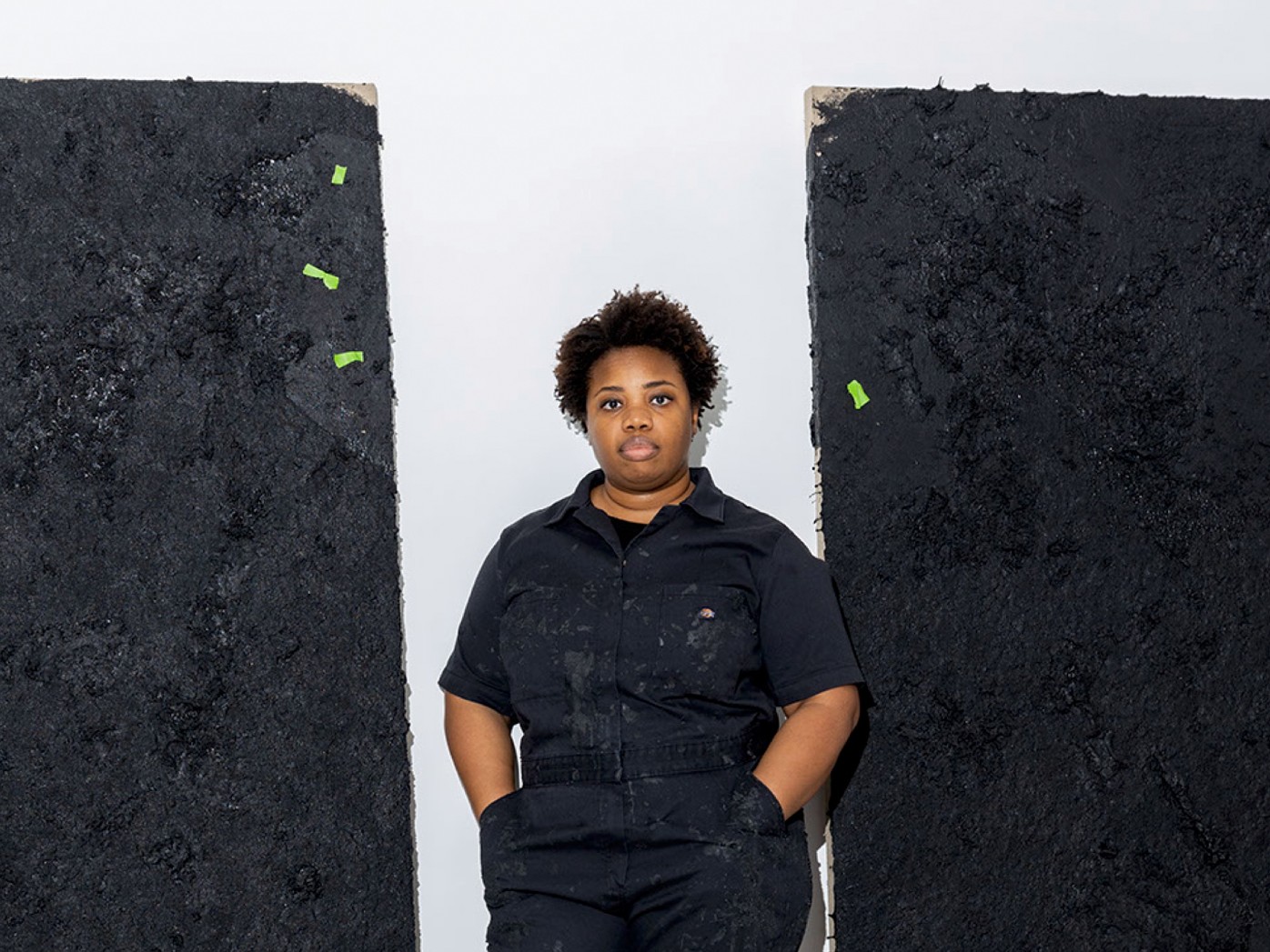
Allana Clarke
Allana Clarke is an interdisciplinary performance artist who lives and works in Detroit MI. Clarke received her BFA in photography from New Jersey City University in 2011 and an MFA in Interdisciplinary Practice from MICA’s Mount Royal School of Art in 2014. Clarke has been an artist in residence at the Skowhegan School of Painting & Sculpture, The Vermont Studio Center, Lighthouse Works, and Yaddo. She has received several grants including the Toby Devan Lewis Fellowship, Franklin Furnace Fund, and a Puffin Foundation Grant. Clarke is an assistant professor at Wayne State University in Detroit and is represented by Zander Galerie based in Cologne and Paris.
-
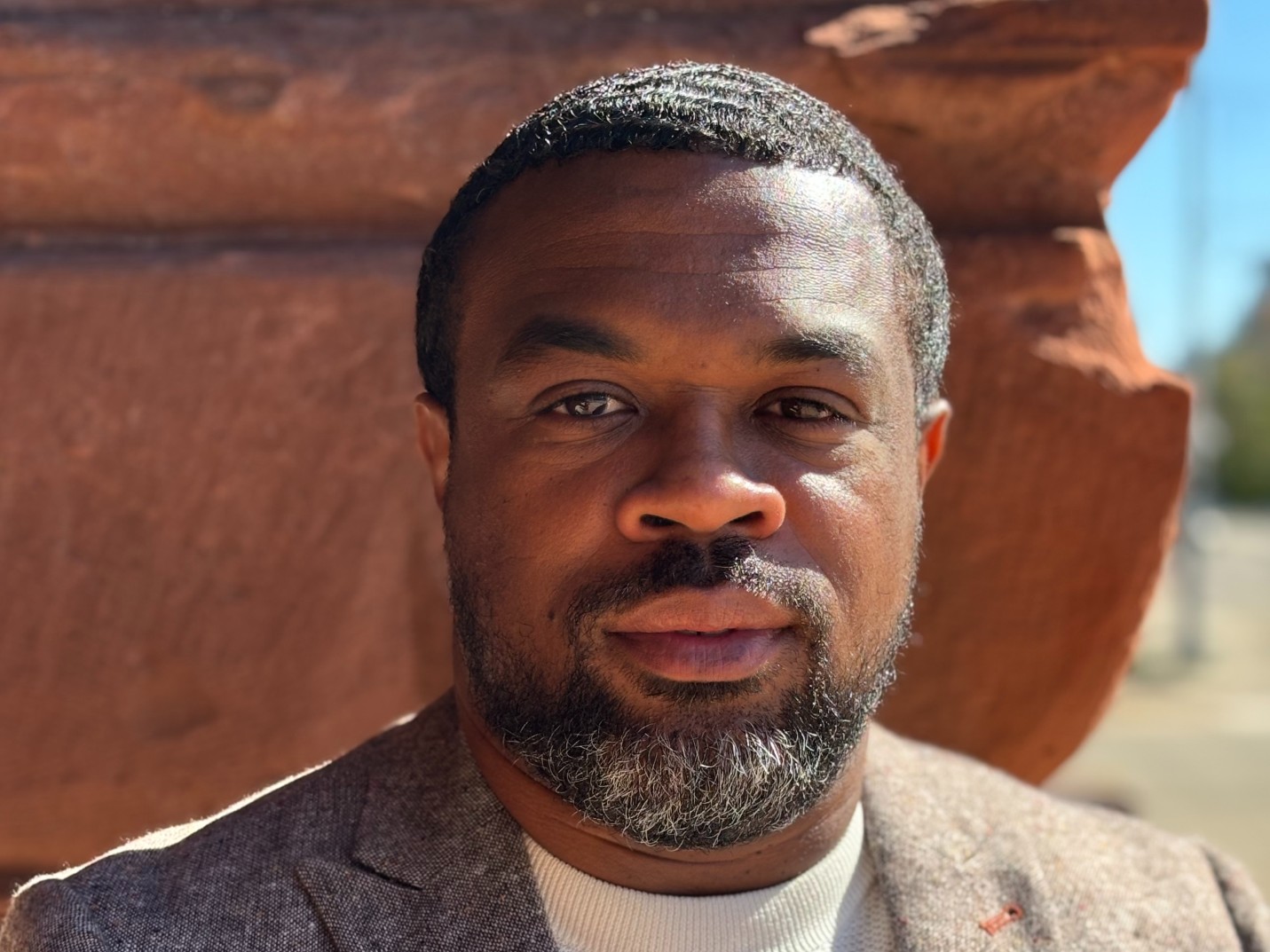
Greg Mays
Greg Mays is a multidisciplinary designer exploring the intersection of footwear, immersive technology, and digital fabrication. As part of the Visn Studio team, he is focused on integrating virtual reality and 3D workflows into the design and prototyping process, with a particular interest in footwear innovation.
Greg is currently pivoting into a tech-focused creative career, bringing together his passions for design, gaming, and programming. He has participated in PLC Light School, TechTown’s Start Studio, and is largely self-taught in coding and app development. His work centers on building tools and experiences that merge fashion and technology in meaningful, future-facing ways.
Greg envisions Detroit as a leader in tech-integrated apparel and is committed to helping shape a creative economy where innovation and accessibility go hand in hand.
-
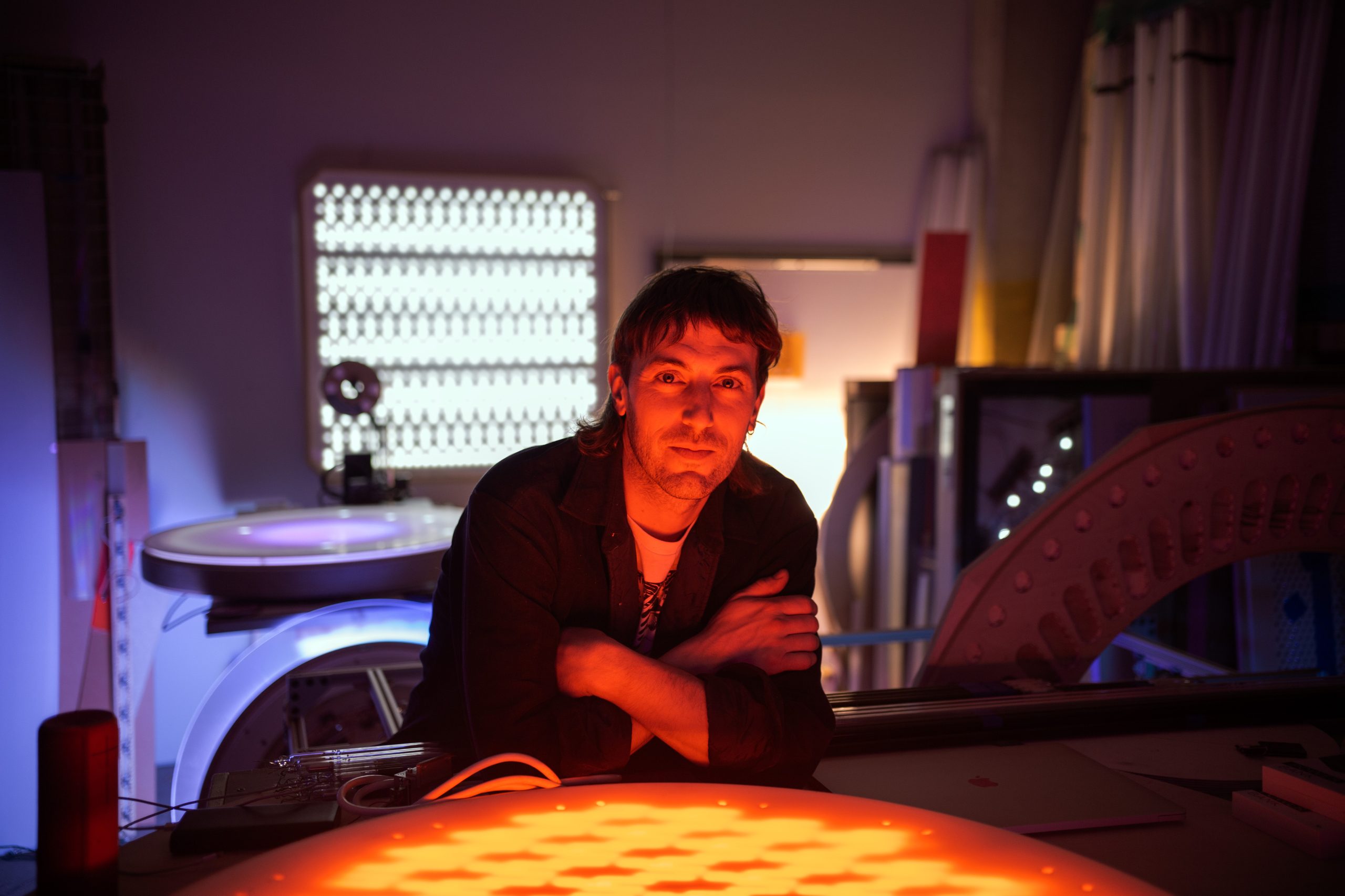
Patrick Ethen
Patrick Ethen is a Light Artist and Designer, whose work focuses on applications of light at a diverse range of scales and modalities. His unique approach to lighting is interdisciplinary in nature, a combination of architectural pedagogy and DIY prototyping culture. With almost no prior knowledge of coding or electronics, he is a shining example of the type of evolution and creative growth that comes from years of repeated failure.
Patrick’s work celebrates shared experience and collective wonderment, and finds success in the sacred moments of release inherent in true perception. Since 2017 his immersive spatial transformations have been a cherished element of Detroit’s underground music scene, and the skill sets learned from these interventions have laid the groundwork to launch independently produced art exhibitions, providing examples of new media consumption and economic models for success that exist outside of tired gallery structures.
Patrick’s temporal, technology-based, ephemeral practice suggests that art is an experience in time, a dance which exists primarily in the mind of the observer.
-
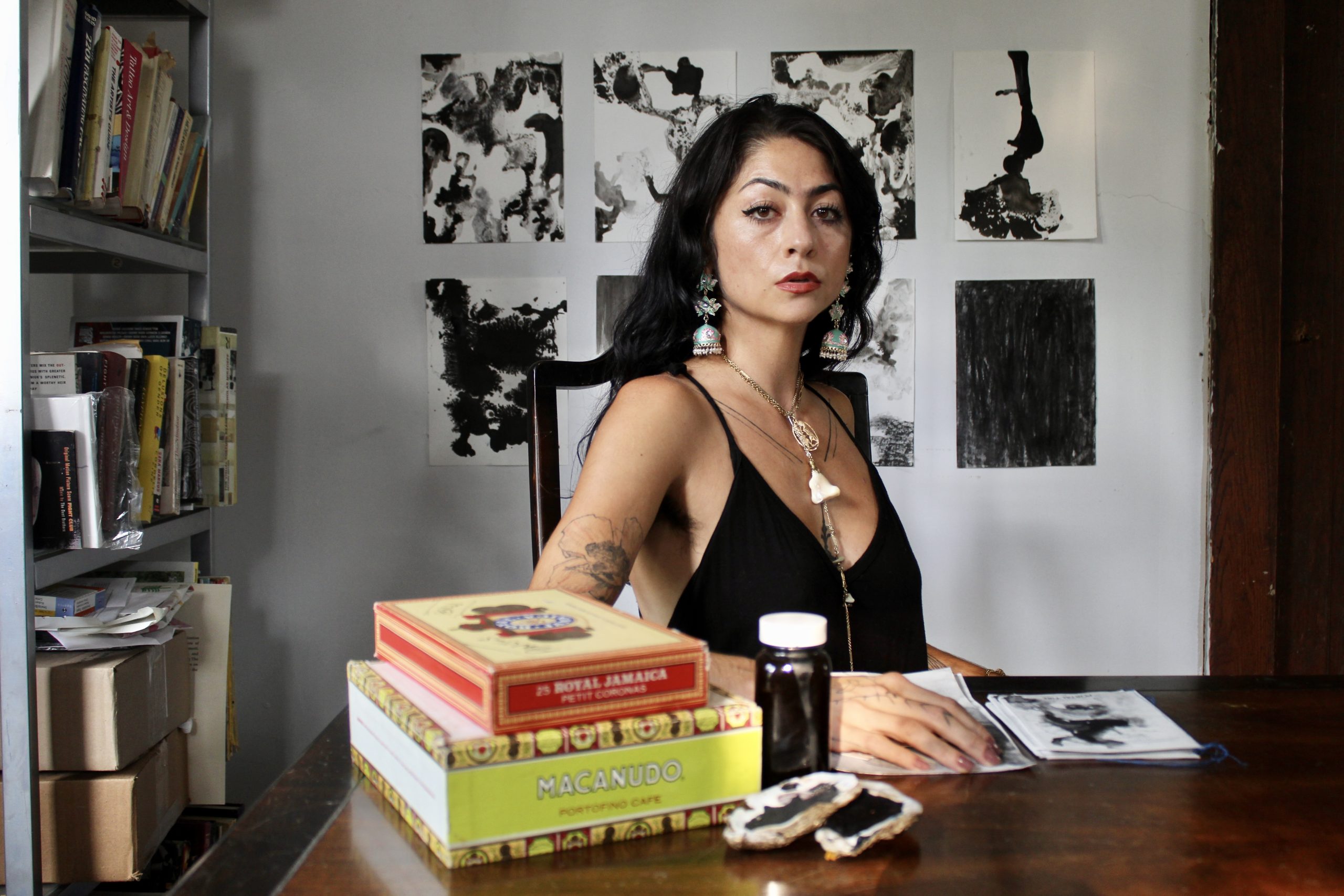
Cyrah Dardas
Cyrah Dardas is a Queer, eco-romantic artist and care worker of the Persian diaspora living in Detroit / Waawiyaatanong, Anishinaabe territory. Their interdisciplinary practice is deeply rooted in ritual, land connection, and somatic inquiry, shaped by experiences as a parent, childcare provider, educator, and grower. Through these roles—and in solidarity with artist cooperatives and community networks—Dardas cultivates art as a space for collective healing and grief composition.
Their work emerges as a tactile archive of process: an ongoing somatic remembering, an invitation into interdependence, and a portal for nervous system regulation. Through her practice, Dardas engages with memory and restoration, seeking to mend lost relationships to self, land, and others. Each piece becomes a witness to their learning, longing, and deep listening.
Cyrah has presented work at the College for Creative Studies (Detroit), The Shepherd, and the MdW Fair. They have held residencies with People in Education, Crosshatch Center for Art & Ecology, Room Project, and BULK Space.
-
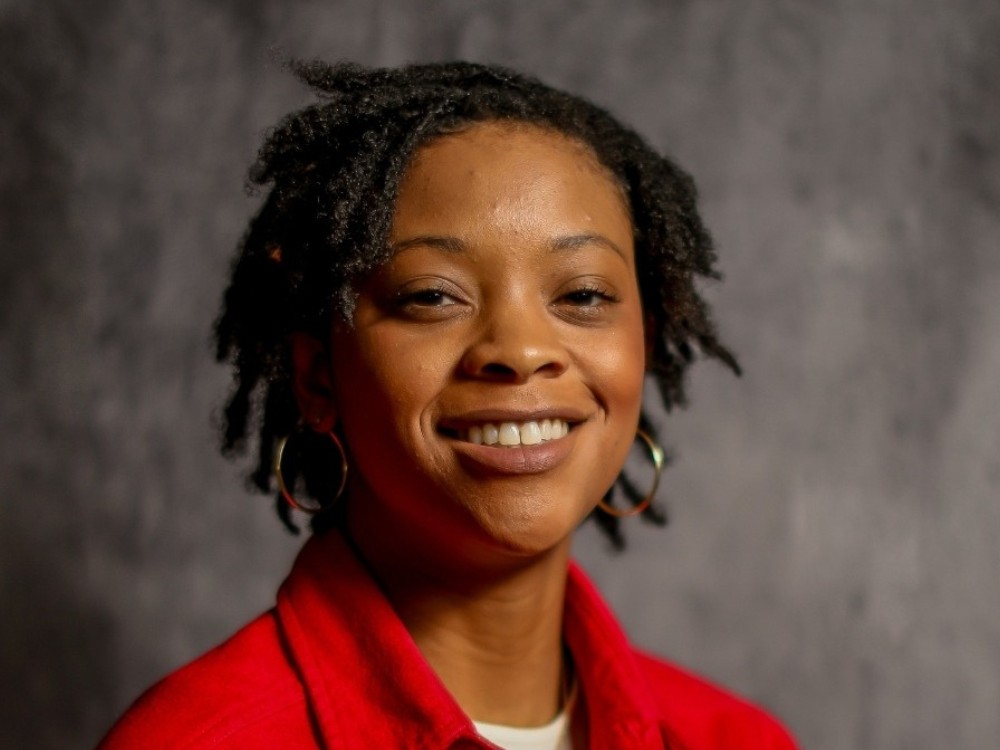
Amanda Brezzell
Amanda B. is a Detroit-based artist, designer, storyteller, and researcher. They work with visual arts and ancestral design concepts. Their work blends ancestral technology, Afro urbanism, sustainability, Afrofuturism, and urban agriculture to call Black People back to nature-based practices that cultivate community. Their work highlights the past, present, and future of the Black experience and Black Detroit. Amanda is the co-founder, creative director, and lead farmer for Fennigans’s Farms Sustainable Design and Development. Their background is in climate science and environment, community rebuilding and resiliency, sustainable agriculture, greenspace design, and African American studies.
Understanding that the challenges underrepresented communities face are amplified during times of crisis, Amanda founded Fennigan’s Farms to build resilient communities everywhere. Using a combination of sustainable indoor and outdoor design and disaster recovery knowledge, in 2019, Amanda set out to build local food systems and resiliency hubs as a means for community resilience. From modern-day victory gardens and expanding to community resource hubs, along with their team, Amanda has grown Fennigan’s Farms to be a resource for growers and community stabilizers across their hometown of Detroit and beyond.

